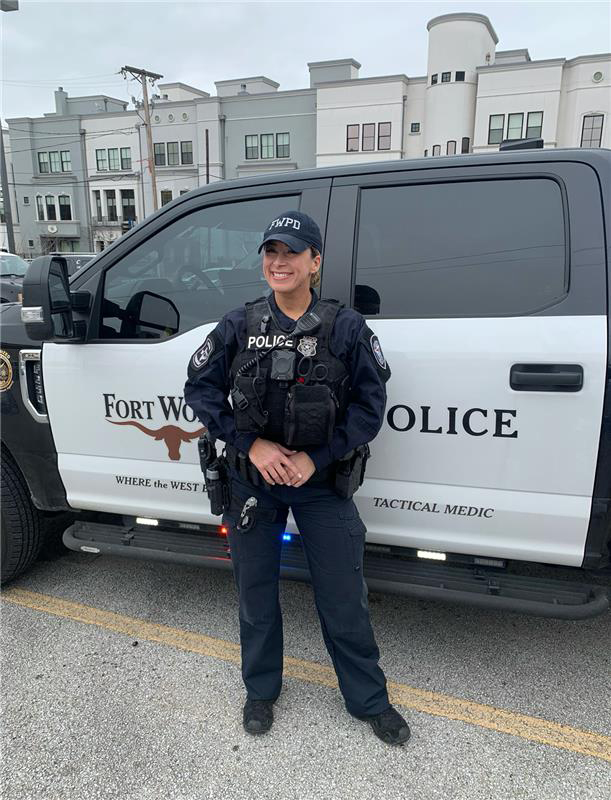 “We’re Not Normal Patients”: Why First Responders Deserve Precision Care
“We’re Not Normal Patients”: Why First Responders Deserve Precision Care
My name is Brandi Kamper and I’m a Physician Assistant with Front Line Mobile Health, an Army veteran, and a former tactical paramedic with the Fort Worth Police Department. I’m also a third-generation police officer and that drives my passion for first responder health and wellness. At Front Line one truth continues to drive our work: first responders are not normal patients.
We’re built different.
Not just physically, though the demands of our jobs certainly shape our bodies, but hormonally, mentally, and emotionally. We don’t operate in the same stress bandwidth as the general population. Our baseline is their redline. And yet, far too often, we’re offered the same 15-minute physical and told, “Everything looks fine.” But everything is not fine. Not when we’re dying younger, developing chronic disease earlier, and suffering in silence until a catastrophic event finally gets our attention.
It’s time we stop treating first responders like standard patients and start recognizing the unique physiology and psychology that make us who we are. We deserve a closer look. We deserve precision care.
Living in the Red
We are “all gas, all brakes”. When a call drops, we flip a switch. Instantly, our adrenal glands flood our bloodstream with cortisol, epinephrine, and norepinephrine. These hormones sharpen our senses, quicken our reaction times, and prepare our bodies to run into danger daily. This isn’t a one-off surge like some experience in a vehicle crash or at a public speaking event.
Repeated upregulation of adrenal hormones day after day, shift after shift, has lasting consequences. Elevated cortisol levels can disrupt sleep, impair glucose metabolism, suppress the immune system, and accelerate fat storage around our organs. Chronically high catecholamines can drive up blood pressure, strain the cardiovascular system, and increase the risk of arrhythmias and cardiac events.
But here’s the thing: these effects don’t always show up in a resting EKG or a basic metabolic panel. You can pass a physical and be a ticking time bomb. That’s why we need diagnostics that go beyond “normal.” We need tools like VO2 max testing, comprehensive lipid analysis, and inflammatory markers that can detect the wear and tear before it becomes disease. We need clinicians who understand that a blood pressure of 130/85 may look “fine” on paper but could be a warning sign in someone who’s been redlining for two decades.
We often hear “You can’t pour from an empty cup.” But the problem is, most of us don’t even know the cup is empty until we collapse. Why? Because we’ve trained ourselves to ignore the warning signs. “Stressed” might mean having chest pain at 37. And “I’m fine” is often code for, “I’ve been ignoring this for months.”
The truth is that our culture encourages us to keep going until we can’t. Add to that the stigma around vulnerability and the fear of being pulled from duty, and it’s no wonder so many officers and firefighters don’t speak up.
You deserve longevity. You deserve to be healthy enough to do your job and make it to a LONG retirement. Because right now, too many of us don’t.
The average life expectancy of a police officer is nearly 22 years shorter than the general population. Firefighters face higher rates of cardiovascular disease and certain cancers. And EMS providers report burnout and depression at rates that are among the highest in healthcare. These are not abstract numbers to me. These are my family. My friends. My brothers and sisters.
If you took a high-performance vehicle and ran it at max RPM every day without checking the oil, eventually the engine would blow. First responders are high-performance humans. We need regular, in-depth checkups to catch what a quick glance might miss.
That’s why precision care matters. It’s about understanding the job demands, the physiological load, and the mental toll so we can tailor care accordingly. It’s about testing effort-dependent variables like VO2 max to catch early cardiovascular compromise in someone who looks fit on the outside. It’s about digging deeper into lipid panels, not just total cholesterol, but ApoB, Lp(a), and more, all of which can signal risk long before symptoms appear.
We know what it’s like to feel invincible because the job demands it, and we know what it’s like to watch someone fall apart because no one ever took a closer look. Get your physicals. Ask for the deeper tests. Advocate for yourself like you would for your partner. You deserve that.
We’re not normal patients.
We never were.
Brandi Kamper
Physician Assistant, Operations Manager at Dallas Clinic
